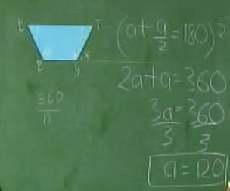All is well that [continues] well: The NFHS Chemistry Lesson Study Group
“It destroyed the wall between the senior and junior teacher. The CLRD program made the group unite. It opened an avenue for change in attitude toward work and co-workers, and for growth in profession.”
Collegiality and collaboration — important aspects of Lesson Study that our team realized over a period of time.
Back 2010, under the UP NISMED Collaborative Lesson Research and Development (CLRD) program, we formed one Lesson Study group composed of three UP NISMED Chemistry staff and five North Fairview High School (NFHS) Chemistry teachers and their Science Coordinator. Reminiscing, the teachers of our team divulged that there was a mixed feeling of excitement, enthusiasm, and anxiety, at the start. When the first cycle started, enthusiasm died down and anxiety went up.

Three months before the first cycle, the team set a goal during a week-long workshop-orientation. The goal is to let the students ask questions and find answers to their questions. Come August 2010, with that goal in mind, our team sat together to plan our first research lesson. We only had two planning sessions to come up with a lesson having a clear outline how the goal will be attained using the topic, acids and bases. It was harder than we thought. Much harder when some of the team members were reserved in sharing their ideas in developing the lesson. It caused some tension. More tension came in when the planning sessions are almost over and the lesson plan is still half-baked. We ended with a sketchy lesson plan. Even so, the team decided to proceed with lesson implementation due to limitations in schedule; leaving to the lesson implementer to fill whatever gap there is. Quite expected, the implementer was anxious that the lesson will not be executed properly; anxiety doubled with the thinking that it is the lesson implementer, and not the lesson, that the team will observe. This was almost the same for the second implementer. It was quite a stress-filled cycle.

But, wait! There’s a rainbow after a storm. As the team revisited what happened during the 2 research lesson implementations, the team realized the potential of the lesson that was together designed. With the chosen motivation wherein the teacher “magically” changes the “color of water”, students were curious to know what made it so. They were so excited and zealous in asking the teacher, “why and how it happened”. The students then were given another activity that will answer their questions. Students were excited and engrossed in doing the activity. It was equally exciting for the team to see the students behave this way. We want more of this!

But, wait! Let’s not forget the stress before this. So, for the second cycle, the team acknowledged the need for more planning sessions. This gave the team added days of interaction which became an opportunity to get to know each other more; incidentally, strengthening what collegiality and collaboration mean and how these are truly significant in realizing the program's goals.
Forward, by November this year, the team will continue in doing its third cycle --- still enthused in collaboratively coming up with a chemistry lesson infused with inquiry-based principles. And for all the stress that we had, we just charged them to experience. Anyway, wisdom comes from experience, right? So indeed, all is well that continues well.
By Jacquie Gutierrez





























